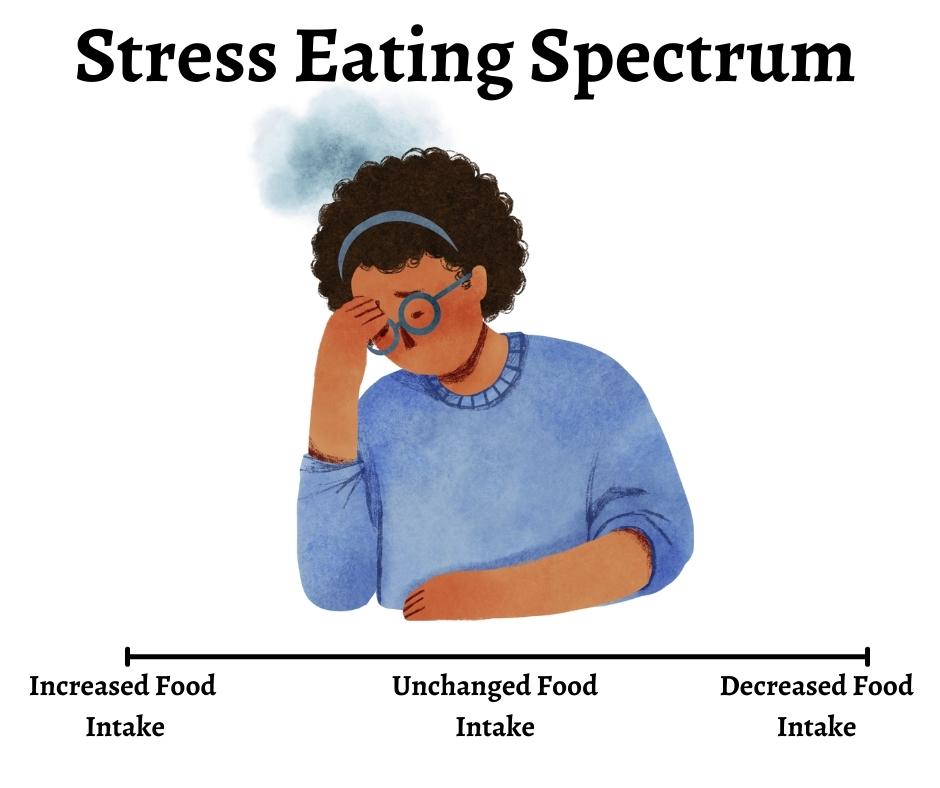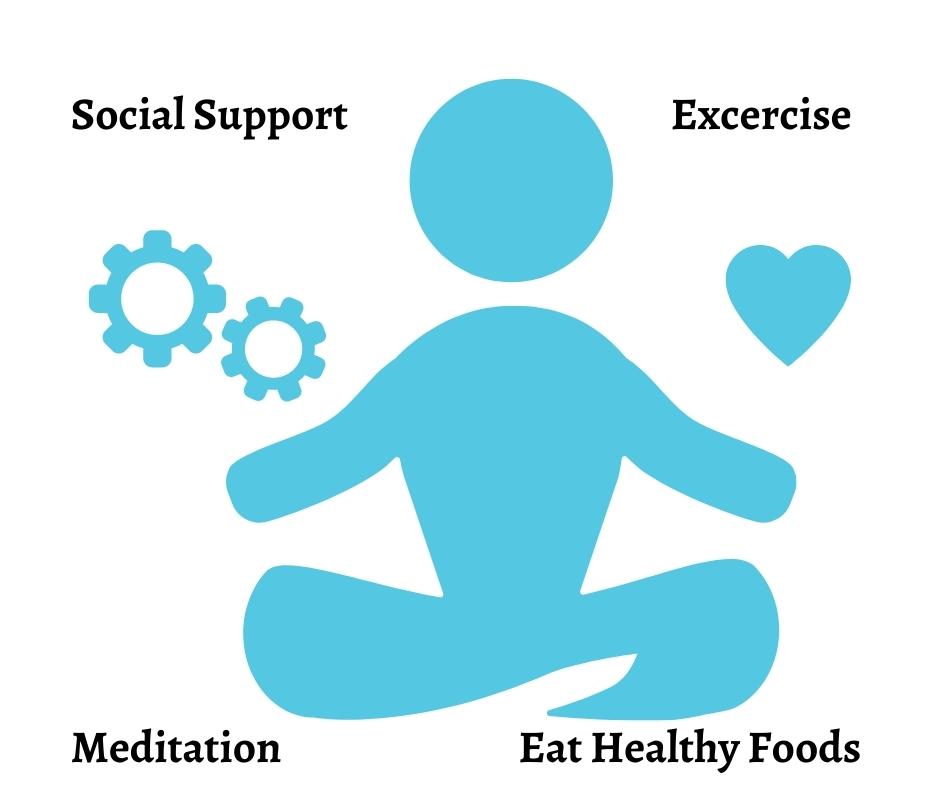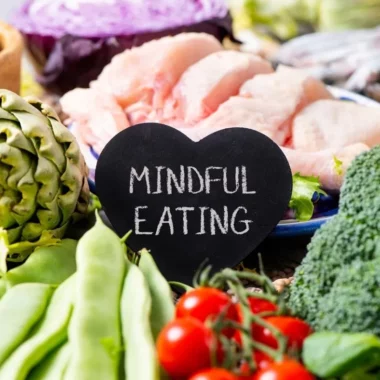Stress eating may not seem like a big issue. However, overtime it can turn into a big problem that drastically affects your life.
There is nothing new under the sun about stress. We’ve all been in uncomfortable situations that made us feel stressed.
However, the most crucial thing is not the stress itself. Stress is inevitable. The most important thing is what you do to overcome the stress.
I often find myself baking up a storm in the kitchen when I am stressed out. However, sometimes that isn’t possible.
I am currently a college student who spends 8-9 months of the year in another country. So, I settle for a candy bar or some other unhealthy food. I also remind myself the stress will eventually dissipate.
What do you do when you feel stressed? Do you exercise or talk to another person about your stressful situation?
Some people eat food when they are stressed. Eating food may when you are stressed may not seem like a bad thing. However, over time stress eating can become a significant problem.
What Is Stress
Stress occurs when environmental needs exceed a person’s perceived ability to adapt to a new situation. Stress is important.
It is associated with diseases such as heart disease, stroke, hypertension, or ulcers. Stress is also associated with changes in eating habits and behaviors.
What Is Stress Eating
Stress eating is using food to make yourself feel better when you feel stressed. Stress eating is not associated with physical hunger. It’s associated with emotional suppression.
Persons use food to suppress painful feelings or situations they are not ready for or cannot deal with at the moment. In other words, stress eating involves using food as a coping mechanism.
Stress can have several effects on food consumption. These effects can depend on individual differences or situational factors.
For some persons, stress has no impact on their eating habits. In contrast, stress can cause some people to increase or decrease their food intake.

Almost half of all stress eaters eat their way through the stress. The other half eat less or fast until the stress dissipates.
What Causes Stress Eating
The exact cause of stress eating is unknown. Several factors make it hard to measure stress eating.
One of these factors is how stress eating is measured. Self-reporting and observation are popular ways to measure stress responses and food consumption.
Self-reporting poses a validity issue because human beings are inconsistent. Some people may exaggerate symptoms. This makes it appear as if consuming food at the slightest sign of stress.
In contrast, some participants may under-report the frequency of their stress eating. This will downplay the larger issue of stress eating. Participants may also forget certain information or make a mistake on the survey.
One study found a third of its participants self-reported eating more when stressed. In contrast, one-third of adult participants self-reported fasting or eating less when stressed.
Participants of observation studies report eating more food when experiencing acute mental stress. Other observational studies found participants ate less when experiencing acute mental stress.
I am not saying that self-reported studies or observational studies are not valid. Humans are complex creatures, making it difficult to study certain habits.
The complexities of human beings account for some variance in stress eating. However, it does not account for the inconsistencies associated with stress eating.
The individual difference model can account for some of these inconsistencies. Psychological, environmental, and physiological factors may influence inconsistent behavior related to stress eating. Individual differences like cortisol, negative mood, or hunger may cause irregular eating behaviors.
Negative affect amplifies reward-driven desire for comfort food. Comfort food is used to decrease the harmful outcomes of stress. Cortisol boosts dopamine production from the brain’s reward systems. The surge of dopamine motivates the craving for comfort food under stress.
Hunger is usually the reason people consume unhealthy snacks. It’s like grocery shopping on an empty stomach. You will buy a boatload of food you don’t need and may end up adding a lot of unhealthy options to your cart.
Believe it or not, eating because of hunger can increase perceived stress. Increased perceived stress may cause increases in ghrelin (hunger hormone) caused by stress.
Nevertheless, these factors are not solely responsible for stress eating. Other studies suggest hunger and negative mood are not associated with stress eating. Additionally, some studies also found decreased food intake when participants were stressed.
A Deeper Look At Stress Eating And Comfort Food
Negative reinforcement influences the drive to consume comfort food when you are stressed. Negative reinforcement removes a negative stimulus caused by physical or psychological discomfort. The negative stimulus is replaced with an action or behavior.
In other words, you take action to prevent the negative behavior from occurring. As time passes, the individual continues performing the action. The hope is that the uncomfortable behavior will stop.
For example, onions are known to make you cry. Soaking the onions in a bowl of water for 10-15 minutes removes the negative stimulus (crying). As time goes on, you will continue to soak the onions in water to prevent the action of crying.
I cook 5-6 days a week and sometimes on Sunday when I am at home. Most Sundays, I don’t get out of bed until 11 am or 12 pm unless I am behind on contracts.
So when I cooked on Sundays, most times, the food was never finished when my family came home from church. As you can imagine, they started complaining. I removed the negative stimulus (complaints) by cooking earlier. So the food was ready when they arrived home.
Let’s apply negative reinforcement to stress eating. Stress-induced comfort food consumption is motivated and supported by negative reinforcement. Stress-induced comfort food consumption removes the uncomfortable feeling of stress via brain pathways.
First, you eat palatable foods (foods rich in fat and sugar) when you are stressed. This causes dopamine to be released through brain reward networks.
Dopamine is a feel-good hormone, so it elicits feelings of pleasure. Therefore the pleasant memories associated with consuming comfort foods provide emotional solace. It can also increase the desire to eat comfort foods when stressed.
When stressed, consuming palatable foods also reduces the hypothalamic-pituitary-adrenal (HPA) axis. Behavioral stress reactivity within the central stress response system is also decreased.
The reduction in stress may account for feeling better after stress-eating comfort foods. Over time, it may encourage people to use palatable food as a coping mechanism.
Perceived life stress can increase the desire to eat comfort foods when you are stressed. This behavior can be more reinforcing for individuals with higher perceived life stress.
How To Stop Stress Eating
Once you’ve identified that you are a stress eater, there are a few ways to manage stress in a healthy way.
.

Meditation
Meditation can be used to reduce stress. One study evaluated 89 nursing students in Thailand and found mindfulness meditation decreased anxiety and stress levels.
Another study examined the effectiveness of Yoga Nidra meditation on stress, sleep, and well-being. Participants were divided into a meditation group or a control group. Those in the meditation group experienced reduced stress levels, improved well-being, and sleep quality post-intervention.
Meditation may also help you be mindful of your urges to consume fat-rich or sugar-rich comfort foods and help you prevent the craving.
Exercise
Exercise has antidepressant effects. Individuals who exercise more are more resistant to stress.
Yoga is also a popular way to deal with stress. Studies have shown that yoga can help manage and reduce stress and anxiety.
Social Support
Social support is everything when it comes to managing stress. Nothing compares to talking to your family, friends, therapist, or another person about a stressful situation. Venting can make you feel like a weight’s been lifted off your shoulder.
Social support has a mediating effect on job stress, depression, and anxiety. Social support is also associated with good mental health, so the next time you feel stressed, tell a friend or loved one about it.
Make Healthier Food Choices
Most people usually reach for cake, ice cream, or some other type of palatable food when they are stressed. However, healthy foods can be comfort foods. For example, you can eat fruits such as apples, mangoes, oranges, or vegetables such as carrots.
In addition, there are many healthy alternatives to traditional palatable foods. If you are craving ice cream, you can make mango coconut ice cream and vice versa.
In Summation
Everyone experiences stress. There is no way to avoid it, so it’s best to learn how to manage stress in a healthy way, especially if you are a stress eater.






